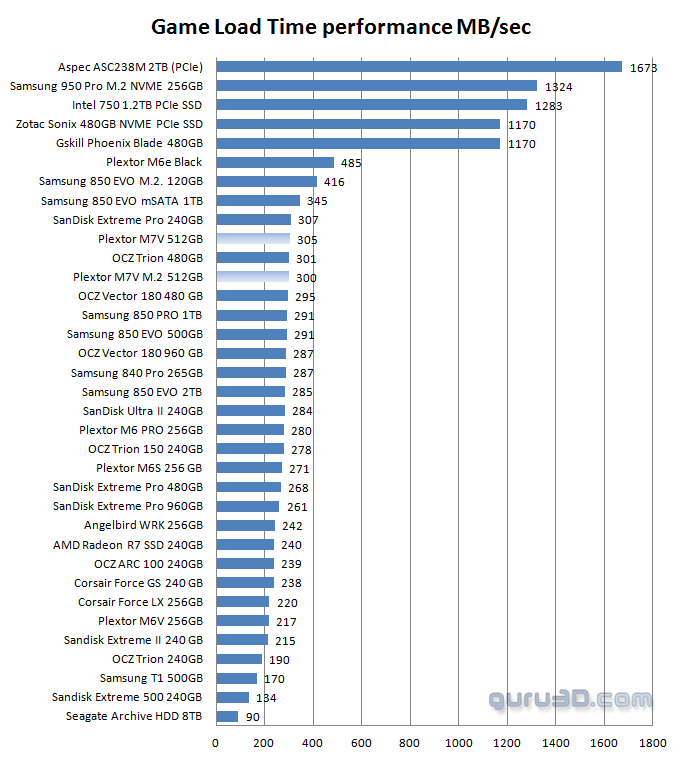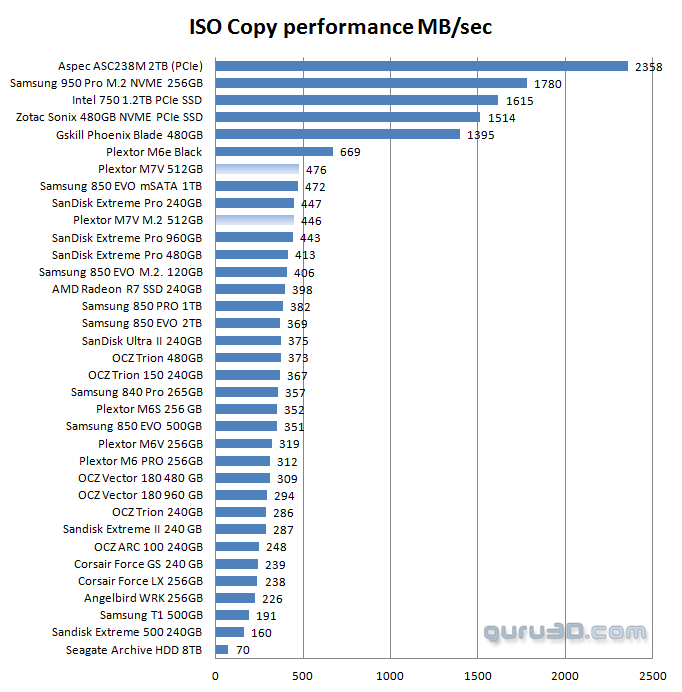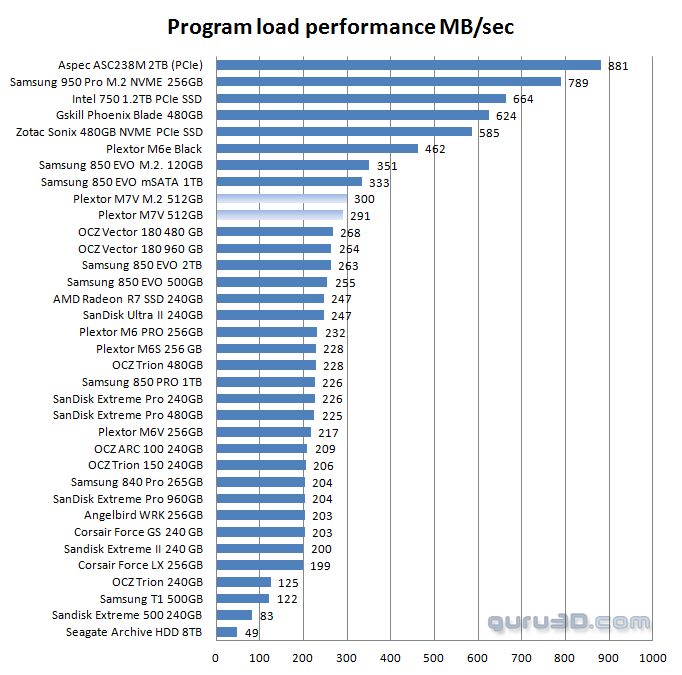SSD Performance File Copy Tests
SSD Performance
In this round of benchmarks we start off with our real-world file copy tests. Currently certain controllers benefit from compressed files, while others don't. Certain storage units hate small files, others work well with them. So it only makes sense to do some manual tests on that. Any storage unit's nightmare, whether that is an HDD or SSD, is storing really small files as fast as possible.
File Copy
The most basic and simple test anyone can perform. We simply drop a 38 GB compressed MKV file onto the SSD. That number will fluctuate a bit here and there during the write process.
OCZ Trion - 480 GB
We immediately tackle the issue with Toggle based TLC NAND, massive load write performance in linear and sustained modes. As you can see, with up-to roughly 10GB continuous writes you'll see very fast performance, once the SSD runs out of breathing space, the numbers will fluctuate downwards pretty big. To my estimation you will get a full blast of ~400MB/s for the first 10 GB of writes, then you will drop to 160~225 MB/s. Hey, this is a value SSD, there is a compromise somewhere.
You also need to wonder how often do you write 10GB or larger files...
Performance Game Load Times
Here at Guru3D.com the audience catered to is primarily made up of gamers. And as such I'd like to start offering real world performance game tests. During game load a lot of things happen in the system. The CPU is hard at work, your SSD loads up executables, binaries, shaders, textures and whatnot while the system memory process it all. The thing is, with a fast SSD you can really decrease the overall load time of your games and levels.
We now measure based on game sequence load and translate that into the number of MB/s the storage unit can manage and load. Higher is better in this chart.
Performance ISO Creation
An ISO file is often comprised of many files archived into a file-container, for example creating a DVD. Below, that situation is emulated. A fast writing SSD will be able to create an ISO much faster opposed to a slower writing SSD. In the chart below higher is better.
Performance Application Load Time
Here we emulate the loading of complex software like Photoshop, Internet Explorer, Word, PowerPoint etc., so how many applications / dlls / hooks /etc. simultaneously in MB/s this storage unit can cope with. A high IOPS storage unit will score better here as it can manage more files in less time.






